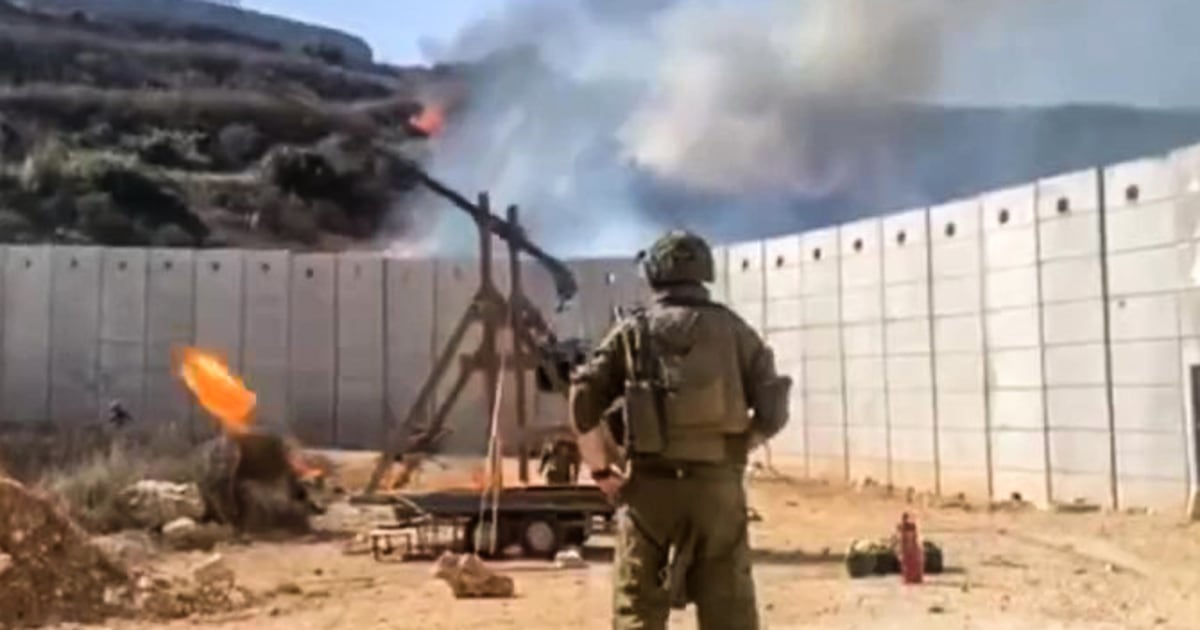TEL AVIV — Israeli troops stationed on the Lebanese border fired a medieval-style siege weapon known as a trebuchet amid recent fighting against Hezbollah militants, an Israeli military official confirmed to NBC News.
Video of the weapon hurling a fireball emerged Thursday, sparking equal measures of confusion and amusement in Israel, even as Israeli troops and Hezbollah were locked in some of the most intense fighting of the war.
The six-second video shows Israeli troops looking on as the trebuchet — which largely disappeared from the battlefield in the 15th century — fires a flaming projectile over a fortified wall. One soldier is seen holding a fire extinguisher in case something were to go awry.
An Israeli military official, speaking on the condition of anonymity because they were not authorized to speak publicly, said the weapon is not part of the IDF’s standard arsenal and is believed to have been built by reservist soldiers stationed on the border.
The official said that while the weapon was not sanctioned by military leadership, the troops were fulfilling a legitimate military task of burning away thick shrubbery along the border where Hezbollah fighters sometimes hide.
The weapon will not be used again, the official added. The Israel Defense Forces did not respond to a request for a formal comment.
Hezbollah has fired more than 200 rockets into Israel since Wednesday, according to the IDF, in what appears to be the largest bombardment by the Iranian-backed militant group since cross-border fighting flared Oct. 8. Hezbollah said the firing was in response to an Israeli strike that killed one of its senior commanders Tuesday.
The low-tech siege weapon, which appeared to be made of wood, was used as the sky above was filled with some of the warring sides’ most advanced technologies. Israeli fighter jets have been streaking over the border in one direction, while Hezbollah’s increasingly sophisticated explosive drones have been flying in the other.
The trebuchet, to understate it slightly, does not have that level of precision targeting.
First used in battle in the 4th century B.C., its basic design involves a heavy weight that drops and causes a long arm with a sling attached to arc skyward, hurling a stone or another projectile toward its target.
A useful weapon for besieging medieval castles, it dwindled into irrelevance with the advent of reliable gunpowder artillery.















